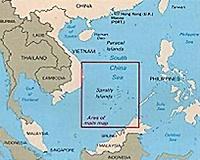 |
Baghdad (UPI) May 19, 2011 Oil supremo Hussein al-Shahristani says Iraq's oil reserves have risen to 200 billion barrels, making it the country with the third highest oil reserves; but bombings in the oil city of Kirkuk underline how security in Iraq remains precarious. The bombings Thursday came as Britain's military operation shut down its deployment in Iraq, once second only to the Americans. The Royal Navy team that has trained Iraqi sailors to protect offshore oil platforms in the Persian Gulf was withdrawn amid a continuing pullout by U.S. forces. Three bombs aimed at Iraqi security forces in Kirkuk, divided between Kurds and rival Arabs, killed 25 people and wounded scores more. The city is the hub of the Kirkuk oilfields in northern Iraq that contain about one-third of the country's oil reserves. The Kurds claim Kirkuk and the oil fields, which export oil via pipelines to neighboring Turkey, as part of their semi-autonomous enclave across three northern provinces. But the central government does not want to relinquish the city, also claimed by Sunni Arabs and minorities such as the Turkomen. The Kurds see the oil fields as the economic core of the independent state to which they ultimately aspire. "Kirkuk is witnessing as deterioration in the security situation," said Hassan Torman, a Turkoman and head of the provincial council. "It's possible the attacks will increase if American troops leave Iraq." The whole region is a powder keg, where Kurdish peshmerga -- "those who face death" -- regulars and government forces are squared off for a showdown that many in Iraq feel is inevitable. The 46,000 U.S. troops still in Iraq are scheduled to depart by the end of 2011 under a security agreement between Washington and Baghdad. But some Iraqi leaders have said they want to discuss extending the U.S. deployment past the year-end deadline, a politically explosive issue. Iranian-backed Shiite factions such as the forces of firebrand cleric Moqtada Sadr, which are strong in Baghdad and southern Iraq, where two-thirds of the country's oil lies, have threatened to fight the Americans if they stay on. Meantime, the U.S. pullout continues. On Sunday, the U.S. military handed over a base in Kirkuk Province to Iraqi government security forces. The intensity of the insurgency that followed the March 2003 invasion led by the United States and Britain has diminished since 2009. But the level of violence is creeping up again as U.S. forces withdraw and this could impact Baghdad's ambitious plans to become a leading oil power. In 2003-09, there were more than 600 attacks on Iraq's oil infrastructure. These cost the country more than $12 billion in damage and lost export revenue. But in 2007-09, strikes against oil targets fell by more than 80 percent, largely because of the emergence of a U.S.-trained and oil security force. It's supposed to eventually involve some 42,000 men tasked with guarding the oil fields, refineries and some 4,700 miles of pipeline. Rampant corruption and recruiting problems have limited the current operational strength to around 30,000. There are also serious equipment shortages, particularly helicopters and intruder-detecting sensors. But even so, the oil force has contributed significantly to the reduction in attacks. "We have to do things the old-fashioned way," said Gen. Sabah al-Saidi, who is in charge of energy security in eight central provinces, by round-the-clock patrolling because of the serious lack of key equipment. Gen. Hamid Ibrahim, overall commander of the security force, complains: "We're still short of 12,000 men. We're forced to hire contract workers because the Finance Ministry hasn't provided the funding to hire tenured employees." But boosting the force to its planned strength is essential if it's to continue to be effective as Iraq makes an all-out drive to boost production to unprecedented levels. The government of Prime Minister Nouri al-Maliki has undertaken a massive $50 billion infrastructure upgrade of its energy industry that's vital to its plans to raise oil production from the current 2.6 million barrels per day to 6 million bpd by 2014 and 12 million bpd by 2017. This will also entail developing infrastructure for an emerging natural gas industry that will provide fuel for electricity generation as well as exports. Iraq plans to add 4,375 miles of pipeline across the country, putting even more strain on the undermanned security force.
Share This Article With Planet Earth
Related Links Powering The World in the 21st Century at Energy-Daily.com
 Vietnam says sailors shot in South China Sea
Vietnam says sailors shot in South China SeaHanoi (AFP) May 19, 2011 Two Vietnamese fishermen were shot and wounded in disputed South China Sea waters, a police chief said Thursday, citing the victims' relatives. The incident happened last Saturday in the Spratly archipelago, said Tieu Viet Thanh, police chief of Binh Chau commune in coastal Quang Ngai province. China, Vietnam, the Philippines, Brunei, Malaysia and Taiwan claim all or part of the island g ... read more |
|
| The content herein, unless otherwise known to be public domain, are Copyright 1995-2010 - SpaceDaily. AFP and UPI Wire Stories are copyright Agence France-Presse and United Press International. ESA Portal Reports are copyright European Space Agency. All NASA sourced material is public domain. Additional copyrights may apply in whole or part to other bona fide parties. Advertising does not imply endorsement,agreement or approval of any opinions, statements or information provided by SpaceDaily on any Web page published or hosted by SpaceDaily. Privacy Statement |